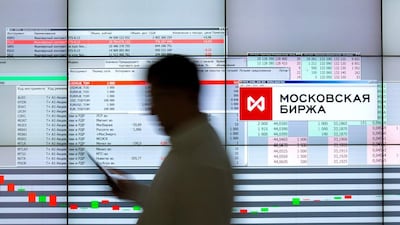Emerging market equity funds face a crucial test after suffering their biggest weekly outflows in more than two and a half years last week.
Fears of political turmoil, currency devaluations and the threat of a China slowdown prompted investors to withdraw more than US$6.4 billion.
Now attention is focused on Brazil, India, Indonesia, South Africa and Turkey – countries that have been dubbed the “fragile five” by the investment bank Morgan Stanley because of their big current-account deficits. Alone, these concerns are unlikely to spark global contagion unless China’s debt problems explode, analysts say.
“Investors have become unnerved by political turmoil in Thailand and Turkey, and a sudden devaluation in Argentina,” analysts led by Jan Loeys at JPMorgan wrote. “Much of this is to us of minor, if any, global importance. The main emerging market risk comes from ongoing efforts by Chinese authorities to reduce the growth of leverage in the financial system.”
The benchmark MSCI Emerging Markets Index fell 1.4 per cent last week and 6.6 per cent in January. The measure has been sliding amid a contraction of Chinese manufacturing, US Federal Reserve monetary stimulus cuts and political unrest in countries such as Ukraine.
In Russia, the state gas producer Gazprom led the drop on the Micex Index on Friday as the rouble approached a five-year low after economic growth missed forecasts and investments declined. And in Turkey, the Borsa Istanbul 100 Index slid 1.3 per cent as the country’s trade deficit increased more than expected.
It was not just emerging market equities that took a beating, though. Developed markets in the US, Europe and elsewhere joined the sell-off, with the S&P 500 and Europe benchmarks dropping.
It is another story, however, in emerging and frontier markets such as those in the Arabian Gulf that boast current account surpluses and whose currencies are pegged to the US dollar. They may get less of a drubbing because of that buffer, according to Mark Mobius at Franklin Templeton.
“Tax rates are generally low in the GCC, and the UAE is a standout in this regard,” said Mr Mobius.
“In Dubai, income tax is zero and profits are taxed at zero which makes things very attractive.”
Equity markets in the region have not been untouched but have held their ground nonetheless.
The Dubai Financial Market General Index rose 0.5 per cent yesterday, bringing its annual gain to 12 per cent while ADX General Index fell 0.3 per cent, paring its year-to-date advance to 9 per cent.
While UAE bourses will eventually be correlated to emerging markets when they officially join the MSCI emerging market index in May, it is too early to say how big the impact will be, said Tariq Qaqish, the head of asset management at Al Mal Capital in Dubai.
“The banks will be affected in the first instance due to drawback of liquidity available in the system, and a lot of the region’s lenders have presence in Turkey,” said Mr Qaqish.
“Even real estate could be potentially affected because there’s less liquidity in the system. Then you have companies like Emaar Properties that have businesses in Turkey that could be affected, but not substantially.”
business@thenational.ae

